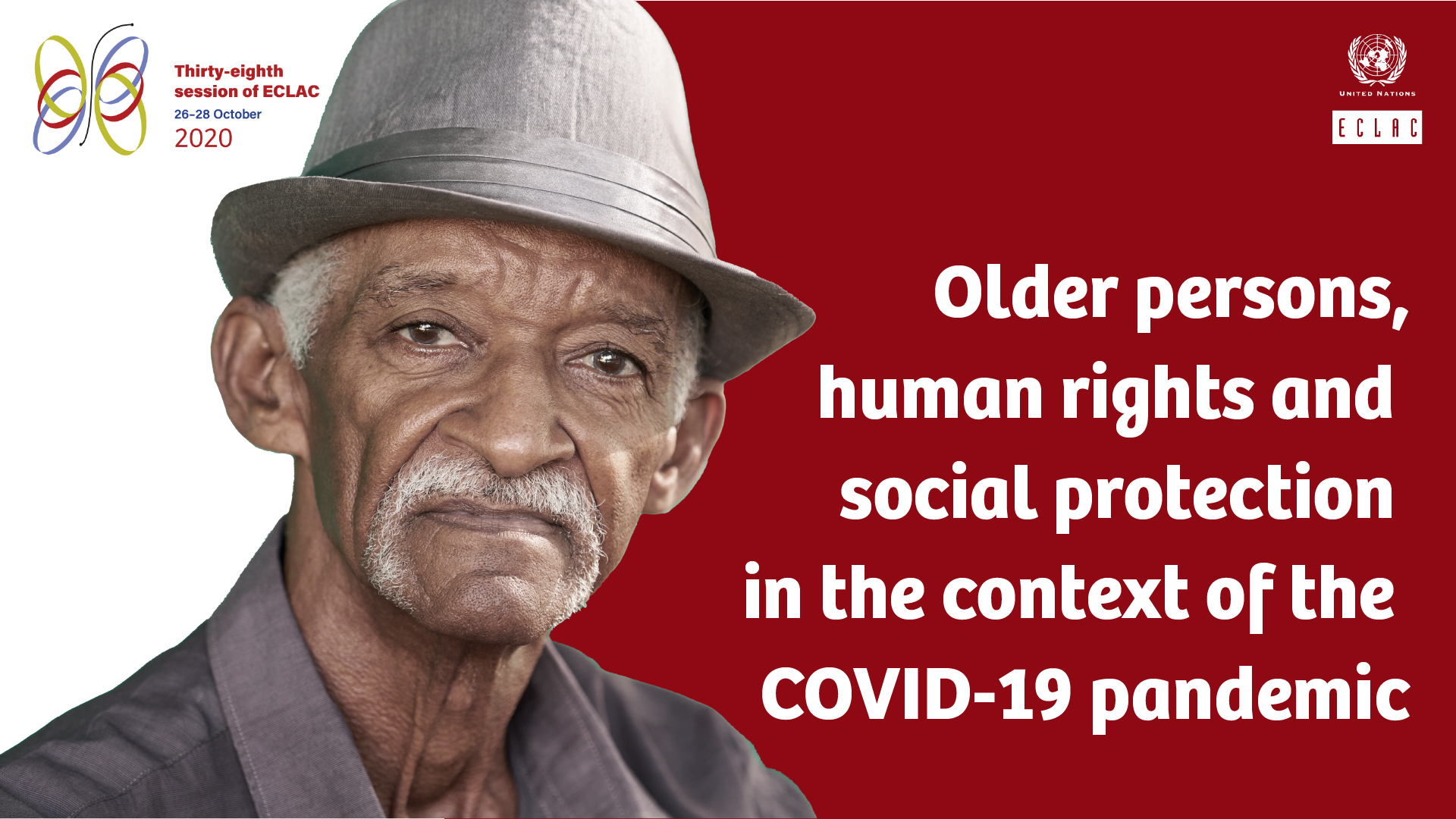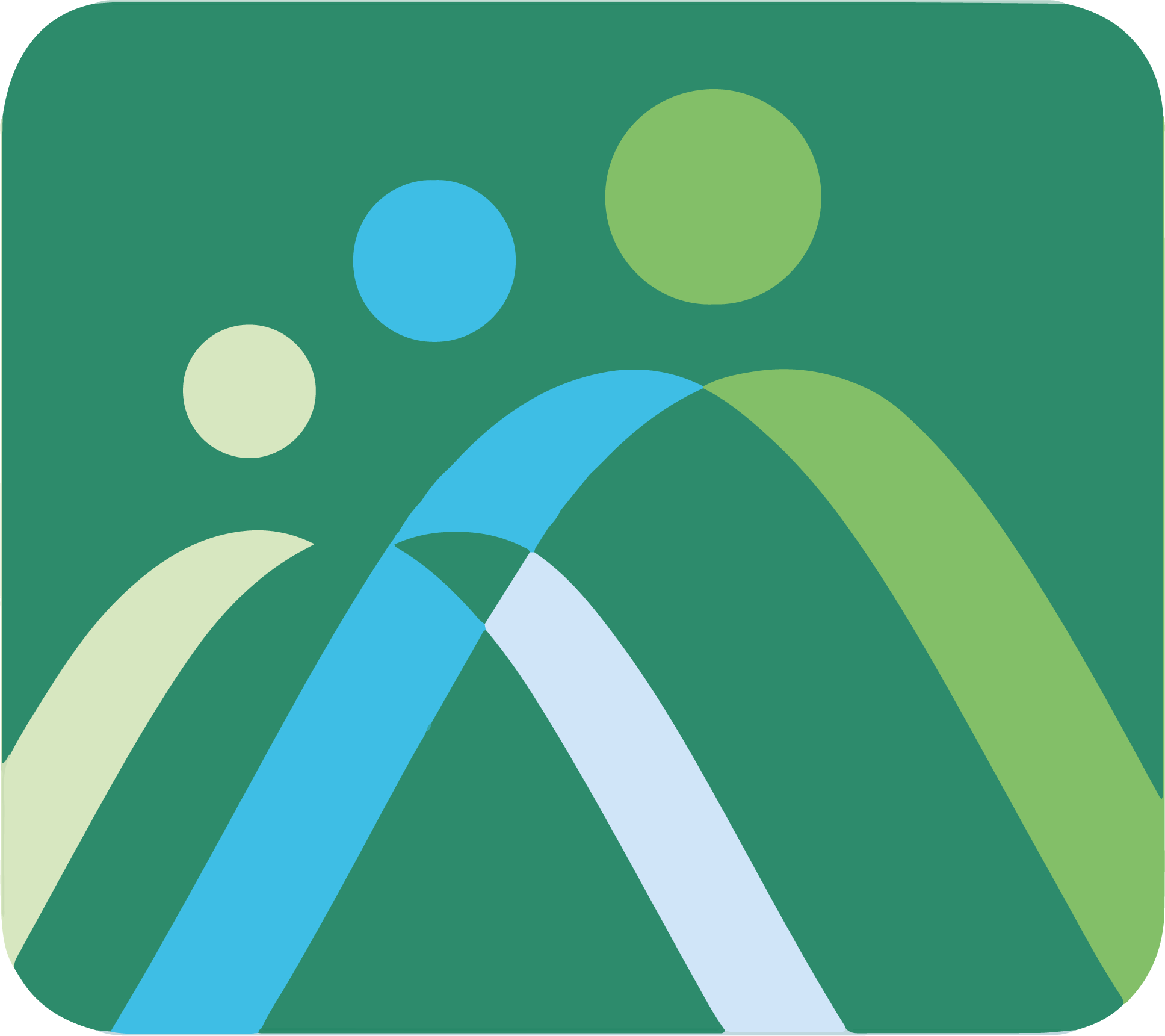The Protection of Older Persons Must Have Dignity and Humanity at the Center
Work area(s)
In the framework of its 38th session, ECLAC presented a document that analyzes the situation of this population in the countries of Central America and Mexico.

The pandemic prompted by the coronavirus (COVID-19) has exposed the lack of public policies to support and meet the needs of older adults in Latin America and the Caribbean, experts affirmed during a high-level event entitled “Older persons, human rights and social protection in the context of the COVID-19 pandemic,” held virtually on Wednesday, October 28, in the framework of the final day of the thirty-eighth session of the Economic Commission for Latin America and the Caribbean (ECLAC).
Participating in the meeting were Mario Cimoli, Deputy Executive Secretary of ECLAC; Marvin Rodríguez, Second Vice President of the Republic of Costa Rica; Emiliana Rivera, Executive Director of the National Council for Older Persons (CONAPAM) of Costa Rica; Christian Courtis, Gender and Women's Rights Adviser for the Office of the United Nations High Commissioner for Human Rights in New York; and Pablo Yanes, Research Coordinator at ECLAC's subregional headquarters in Mexico.
During the event, ECLAC’s Deputy Executive Secretary referred to the need for older persons to occupy an important space – today more than ever.
“We have to rethink this issue as a universal policy, even more so in Latin America, which has very heterogeneous social systems, with little accessibility, with older persons in informal sectors, without work. We have a dual crisis, one of inequality and another very powerful one related to accessibility and poverty,” he stated.
On this occasion, ECLAC presented the document “COVID-19 and its effects on the social protection rights of older persons in the subregion,” prepared by ECLAC’s subregional headquarters in Mexico, which analyzes the situation of this population group in Costa Rica, Cuba, the Dominican Republic, El Salvador, Haiti, Honduras, Mexico, Nicaragua and Panama, and invites the reader to reflect on how averages for the region as a whole often fail to account for specific realities.
At the same time, the study details the problems experienced by older people in relation to access to medical tests and treatments, negligence and violence in long-term care facilities, the lack of access to food, water and basic sanitation, and the loneliness of physical confinement and of a social life that is shifting to a virtual space, among other difficulties. Many of these problems predate the pandemic and are of a structural nature; they reveal the conditions of inequality, exclusion and discrimination in which populations of older persons live.
During the virtual event, Mario Cimoli offered ECLAC’s full support for tackling the structural challenges that demand a renewed commitment to a development model oriented towards greater well-being and based on universal protection systems, so that all people can have at least a minimum standard of economic security, health care and social inclusion to face the risks associated with the life cycle, along with events such as the current emergency.
“The degree of excellence of a society can be evaluated on the basis of how it incorporates its youngest members, youth and older adults. Society reveals its failings if it does not know how to incorporate such an important group – one that has made history, for better or worse, raised our children and grandchildren, built our society and one which, nonetheless, is marginalized in a crisis as severe and difficult as this one,” he concluded.
Related content
Related event

Thirty-eighth session of ECLAC
Reunión virtual, 26 a 28 de octubre 2020
Subregional headquarter(s) and office(s)
Type
Country(ies)
- Latin America and the Caribbean
Related link(s)
Contact
Public Information Unit
- prensa@cepal.org
- (56 2) 2210 2040


